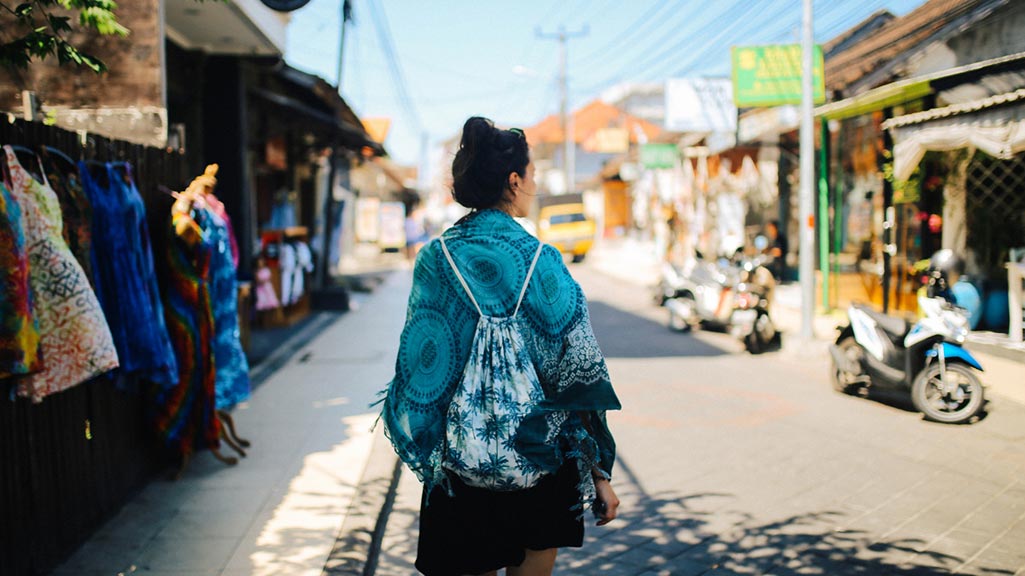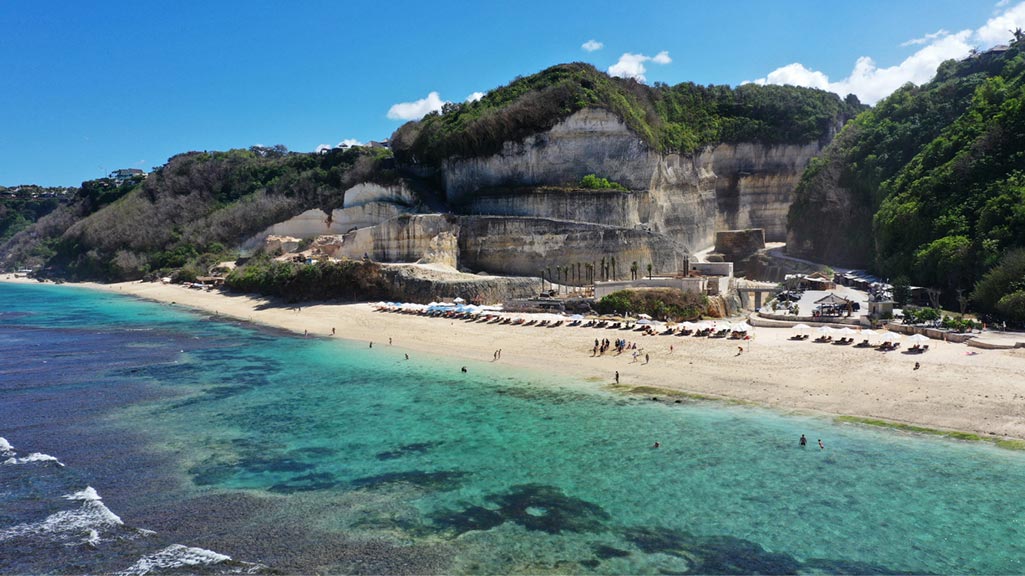Planning a trip to Bali? We’ve rounded up the most common questions we get asked—everything from safety and transport to tipping, weather and what to wear. Whether you’re coming for the waves, temples, food scene, or just to kick back with a coconut in hand, this is your cheat sheet for getting the basics right.
Do they speak English in Bali?
Yes, in most places. Not everyone will be fluent, but you’ll get by just fine.
What are some important cultural things to know?
Respect goes a long way here. Dress modestly in temples, don’t touch people’s heads, and always use your right hand for giving or receiving.
Will I see a lot of poverty?
You might, especially in rural villages where life is simple. But Bali has a strong sense of community and many support systems in place.
Is Bali child-friendly?
Absolutely. Plenty of resorts cater to families, and locals are generally warm and welcoming to kids.
Is it hard to get halal food?
Not at all. Many restaurants are halal-friendly, especially in areas like Nusa Dua or Denpasar.
Is Bali a Buddhist island?
Nope. Bali is primarily Hindu, but it’s home to people from many religions—Muslim, Christian, Buddhist—you name it.
What language do they speak?
Bahasa Indonesia is the national language, but Balinese is spoken locally. English is widely understood, especially in tourist areas.
How are LGBTQ+ travellers received?
Bali is generally tolerant, especially in tourism zones, but be mindful that Indonesia is a Muslim country and therefore quite conservative. Public affection is kept low-key across the board, no matter your orientation.

Do I need a visa to enter Bali?
Depends on your passport. Many countries are eligible for a Visa on Arrival. Longer stays are possible with the right type of visa.
What vaccines or health precautions do I need?
Nothing mandatory, but consult your doctor, especially if you take prescription meds that might be hard to get locally.
Is insurance necessary?
Yes. Just get it. Medical emergencies, flight cancellations, scooter mishaps—it’s worth the peace of mind.
Can I use my normal electric plugs?
Bali uses 230V, 50Hz, and the plugs are typically two round pins (Type C or F). Bring an adapter if needed.
What SIM card should I get?
Local providers like Telkomsel, XL, and Smartfren offer affordable data packages. You can buy one at the airport or convenience stores. Bring your passport.
Do they have ATMs and accept credit cards?
Yes. ATMs are everywhere, and many places take cards, but always carry some cash, especially for local warungs or market stalls.
What’s the exchange rate?
It changes daily. Check before you travel, and use trusted money changers or ATMs inside banks or shops.
Are there any holidays I should know about?
Nyepi (Day of Silence) is the big one. No flights, no cars, no leaving your hotel. It’s one of the most unique experiences you can have in Bali. Check out more about Nyepi here.
Is it safe to travel solo?
Yes, especially for women. Just use common sense—don’t flash your stuff, don’t leave drinks unattended, and trust your instincts.
Do they have ATMs, and can I use my credit card?
Yes. ATMs are widely available, and most places accept major credit cards.
What is a common language travelers should know to connect with locals?
Locals really appreciate it when travelers make an effort to speak a few basic words in their language. Try using phrases like “terima kasih” (thank you), “selamat pagi” (good morning), and “permisi” (excuse me)

How do I get around?
There’s no public transport. Most people use GoJek or Grab (like Uber). They’re safe, affordable, and trackable. Private drivers are great for day trips.
Is Bali safe?
Yes, generally. But watch your phone and bag on motorbikes—snatch theft can happen. Stick to reputable money changers. Trust your gut.
Can I drink the water?
Nope. Stick to bottled or filtered water—even for brushing your teeth if you’re sensitive.

What clothing should I bring?
Light, breathable clothes work best. Even during dry season, it’s hot. Bring a sarong for temple visits—some places will lend or rent one.
Do I need to tip?
It’s not expected, but always appreciated. Most workers earn modest wages. Even a small tip can make someone’s day. Hotels and restaurants add a service charge by law, which is shared among the staff.

What kind of food will I get in Bali?
Everything. Local warungs, Indonesian favourites, and international restaurants—from Italian to Japanese to vegan cafes. Follow our @balifood page for recommendations.
Is alcohol expensive?
Spirits and wine are taxed heavily. Beer is cheap. Some brands like Smirnoff and Gordon’s now produce locally, which helps bring prices down.
How much is food?
You can eat for under IDR 50K at a warung, or splurge at a fine dining spot. There’s something for every budget.

What are the best things to do with kids?
Bali Zoo, Waterbom, beach clubs with pools, rice field walks, and family-friendly restaurants. Check out our family-friendly guide.
Must-do adventure activities?
White-water rafting, volcano hikes, diving, surfing, ATV rides, jungle swings, waterfalls—the list is long.
Where should I stay if it’s my first time?
Seminyak, Canggu, or Ubud are all solid choices depending on your vibe—beach, culture or wellness.
Where are the nicest beaches?
Check out Bingin, Thomas Beach, Nyang Nyang, Legian and Nusa Dua. Some require a bit of a trek but are worth it.
What are the best surf spots?
Uluwatu, Padang Padang, Canggu, and Medewi if you’re heading west. Bali’s got waves for all levels.
How long should I stay in Bali to really see it?
10–14 days gives you time to explore a few different regions without rushing.
What’s the weather like?
Dry season runs June–Sept. Wet season kicks in around Oct/Nov. Still warm year-round.
When is the best time to go?
Dry season if you want sunshine. Wet season is greener, quieter, and sometimes cheaper.
How much will I spend per day?
Budget travellers can live on IDR 500K/day. Mid-range? Around IDR 1M–1.5M. Luxe travellers—the sky’s the limit.